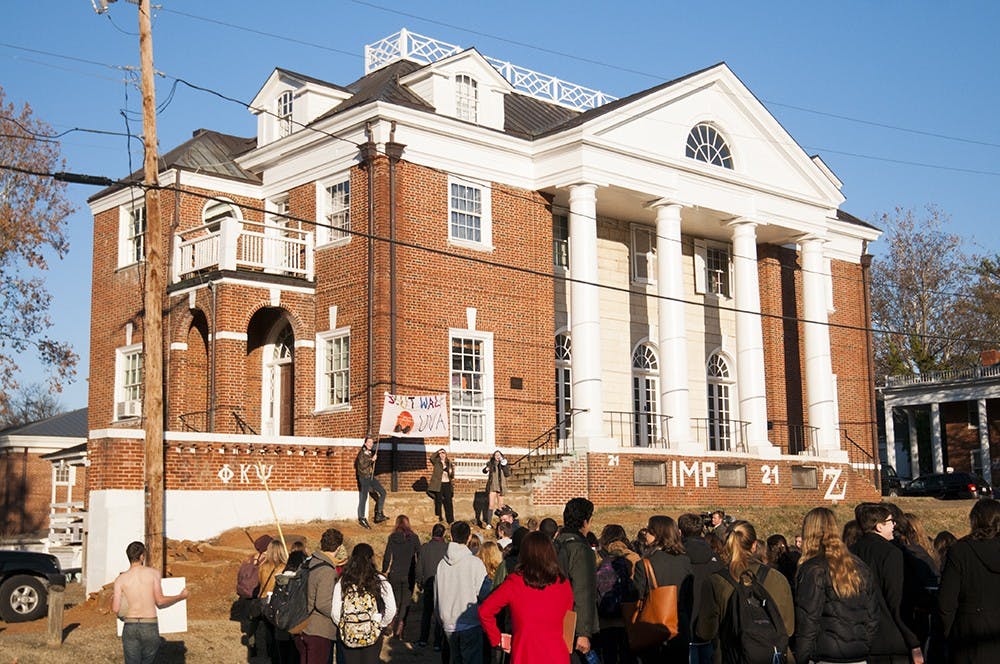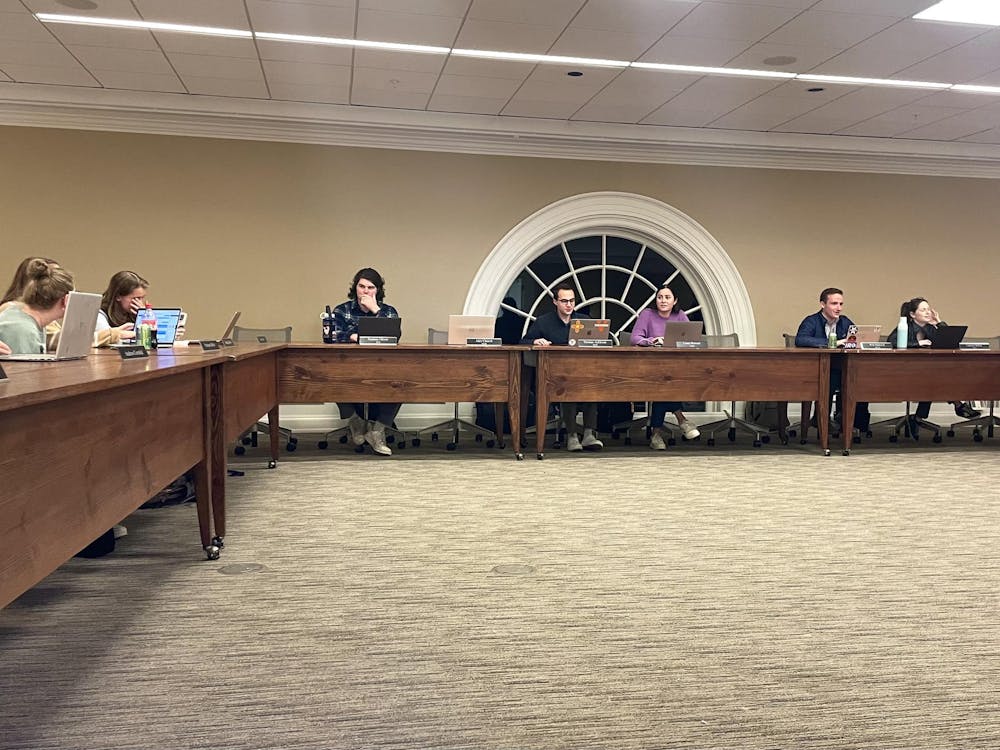The University’s chapter of Phi Kappa Psi fraternity announced plans to take legal action against Rolling Stone magazine in a statement released Monday. The lawsuit comes shortly after the Sunday release of the Columbia Journalism School’s review of the article, which described an alleged gang rape said to have taken place in the fraternity house. The Columbia Journalism School’s report found failures at all levels of the editorial process, and Rolling Stone has since fully retracted the article.
"After 130 days of living under a cloud of suspicion as a result of reckless reporting by Rolling Stone magazine, today the Virginia Alpha Chapter of Phi Kappa Psi announced plans to pursue all available legal action against the magazine," the statement read.
Third-year College student Stephen Scipione, president of the Phi Kappa Psi Virginia Alpha Chapter at the time the article was released, said the Columbia Journalism School’s review affirmed what he saw as Rolling Stone’s reckless behavior and Phi Kappa Psi’s lack of involvement with the events depicted.
“The report by Columbia University’s School of Journalism demonstrates the reckless nature in which Rolling Stone researched and failed to verify facts in its article that erroneously accused Phi Kappa Psi of crimes its members did not commit,” Scipione said. “This type of reporting serves as a sad example of a serious decline of journalistic standards.”
Following the publication of the article — entitled “A Rape on Campus” and written by Sabrina Erdely — University President Teresa Sullivan requested a criminal investigation into the events described by Jackie, the victim of the alleged attack and Erdely’s primary source for the article. The Charlottesville Police Department held a press conference on Mar. 23 in which Charlottesville Police Chief Timothy Longo declared there was no substantive evidence that the events occurred as described in the article. The investigation was suspended indefinitely.
The Columbia Journalism School’s review stated the backlash — the criminal investigation along with student uproar — following the Rolling Stone article’s publication was “avoidable,” and was the result of a failure to follow proper journalistic technique.
“Rolling Stone's repudiation of the main narrative in "A Rape on Campus" is a story of journalistic failure that was avoidable. The failure encompassed reporting, editing, editorial supervision and fact-checking,” the report reads. “The magazine set aside or rationalized as unnecessary essential practices of reporting that, if pursued, would likely have led the magazine's editors to reconsider publishing Jackie's narrative so prominently, if at all.”
The fraternity’s statement also describes the acts of vandalism and public protests at the fraternity house in the weeks following the original publication of the Rolling Stone article, including broken windows and spray-painted remarks outside the house. Scipione said the Rolling Stone article both negatively affected the fraternity’s reputation and decreased the likelihood of future sexual assault victims coming forward.
“Clearly our fraternity and its members have been defamed, but more importantly we fear this entire episode may prompt some victims to remain in the shadows, fearful to confront their attackers,” Scipione said. “If Rolling Stone wants to play a real role in addressing this problem, it’s time to get serious.”





